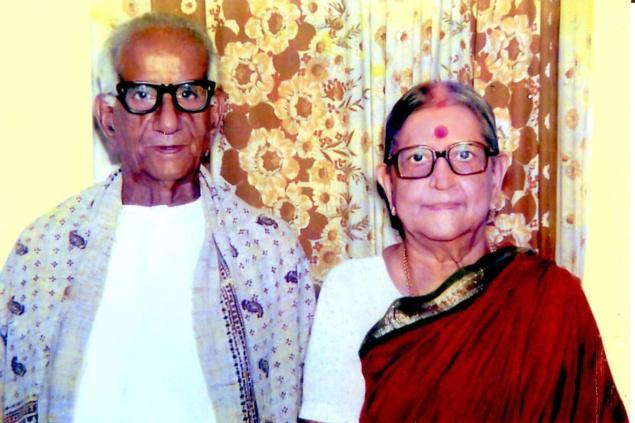
Subri was closely associated with the freedom movement and along with his wife Kamala courted arrest several times
V. R. Krishna Iyer, a leading advocate in Coimbatore and his devout wife Parvathi named their fifth child Subramaniam, after the deity at Chennimalai. The young boy grew up to be better known as Kovai Subri. Subri was drawn to the ideals of Gandhiji and he quit college in order to join the freedom movement.
In 1921, the town Congress committee was born and textile pioneer G. Kuppuswamy Naidu officiated as the President and Subri (1898 – 1993) became its Secretary.
Freedom fighter C. P. Subbiah (1895 – 1967) also joined them and remained a lifelong friend of Subri.
Subri was imprisoned when he joined the flag Satyagraha at Nagpur under Sardar Vallabhai Patel in 1923 and he spent a year in prison. He was imprisoned on five other occasions and cumulatively spent more than five years of his life in prison.
It was during his years in prison that Subri composed songs which were later compiled into a book called Desiya Geethangal. He composed Muruga Ganam which consisted of 426 songs classified into 12 volumes.
He started a khadi centre at Padiyur near Uthukuli and Gandhiji has praised Subri for his stellar role in the freedom movement in the pages of Young India.
When Gandhiji toured in Coimbatore and Nilgiris district Subri was his translator and he impressed the Mahatma with his stentorian voice. Gandhiji affectionately referred to him as his ‘loud speaker!
Subri was the Municipal Chairman between 1938 and 1942. It was due to his efforts that Gandhi Park came into being. He was an MLA who represented the Coimbatore City Constituency between 1947 and 1952.
He married Kamala (1911 – 1993), the young daughter of A. Naatesa Iyer who was an advocate-cum teacher from Pollachi. Subri warned Kamala about the risks involved in marrying a freedom fighter, but they nevertheless got married on the 14 November 1926. Kamala also courted imprisonment in front of the Municipal office for participating in the Salt Satyagraha of 1930 along with their six month old daughter. She was imprisoned again for participating in the Satyagraha in 1932 along with her colleagues Padmavathy Asher (Tirupur), Ambujam Raghavachari, Muthulakshmi (Satyamangalam), Govindammal Ayyamuthu and Kamala Krishnaswamy.
Subri’s home at 91, Karuppa Gounder Street was always a beehive of activity. He was close to Rajaji, M. P. Sivagnanam, C. Subramaniam, Kalki, Sadasivam, S. N. R. Chinnaswamy Naidu, Kovai Khadar Ayyamuthu, Chinna Annamalai, Dr. C. Nanjapapa, T. A. Ramalingam Chettiar, T. S. Avinashilingam
Chettiar,T. Raghavachari, R. Venkataswamy Naidu and Rasikamani T. K. Chidambaranathan.
Post independence, when Rajaji took the lead to launch a new national party – The Swatantra Party, Subri joined the same.
G. K. Sundaram described Subri’s life as one of sacrifice, which he gave unstintingly to the nation. He said, “Such men are the salt of the earth”.
(Rajesh is passionate about his city and is always looking for ways of documenting its history)
source: http://www.thehindu.com / The Hindu / Home> Features> MetroPlus> Hidden Histories / by Rajesh Goivindarajulu / January 30th, 2015